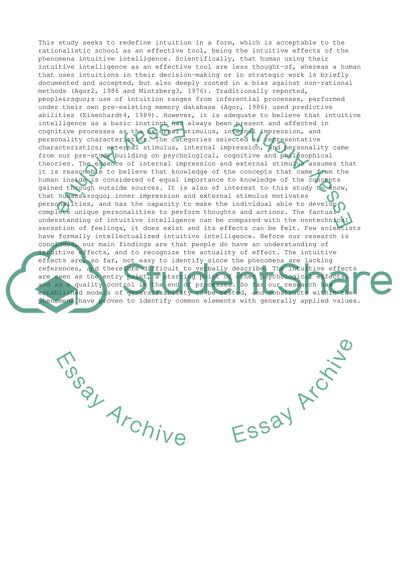Cite this document
(Conceptual Processes Of The Phenomena Intuitive Intelligence Article, n.d.)
Conceptual Processes Of The Phenomena Intuitive Intelligence Article. Retrieved from https://studentshare.org/management/1747635-an-effect-study-of-intuition
Conceptual Processes Of The Phenomena Intuitive Intelligence Article. Retrieved from https://studentshare.org/management/1747635-an-effect-study-of-intuition
(Conceptual Processes Of The Phenomena Intuitive Intelligence Article)
Conceptual Processes Of The Phenomena Intuitive Intelligence Article. https://studentshare.org/management/1747635-an-effect-study-of-intuition.
Conceptual Processes Of The Phenomena Intuitive Intelligence Article. https://studentshare.org/management/1747635-an-effect-study-of-intuition.
“Conceptual Processes Of The Phenomena Intuitive Intelligence Article”, n.d. https://studentshare.org/management/1747635-an-effect-study-of-intuition.


